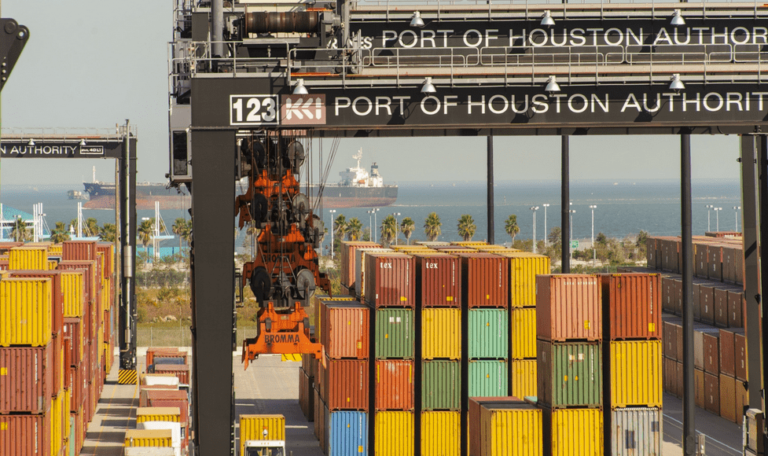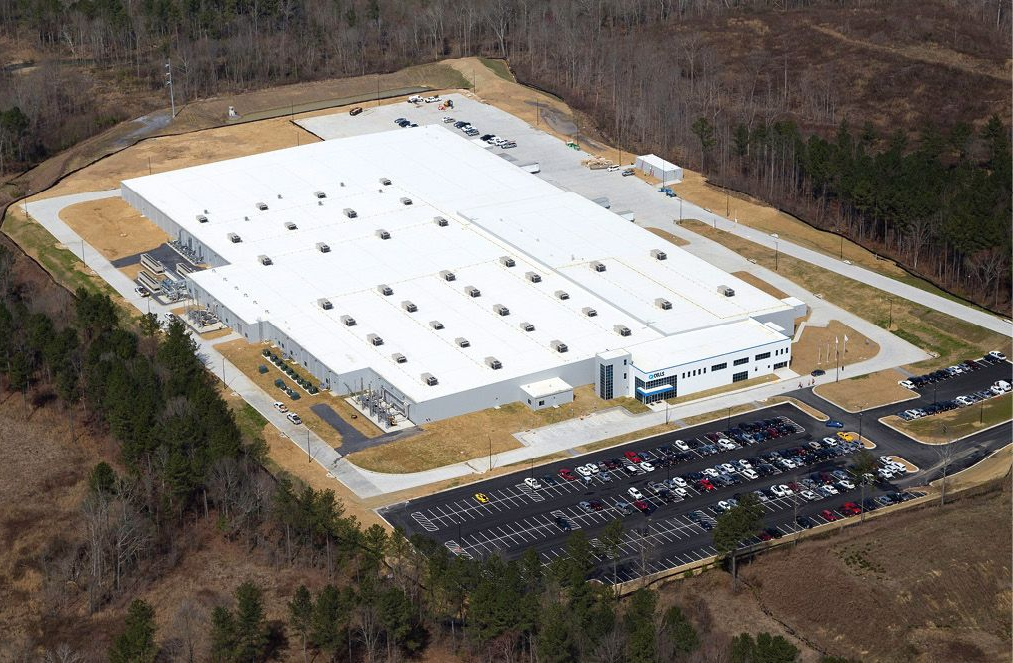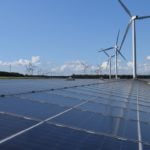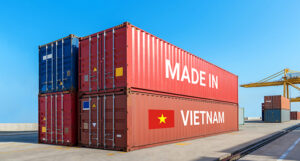Latest
MJ Shiao said US developers should optimise supply security over individual project finance. Image: Port Houston.
Long-term procurement decisions from the US solar industry could support US solar manufacturing, regardless of changes to federal tax credits, PV Tech has heard.
According to MJ Shiao, vice president of supply chain & manufacturing at the American Clean Power (ACP) Association, the US industry “should be thinking about our projects and companies in terms of years and decades, not necessarily project-by-project”.
This article requires Premium Subscription Basic (FREE) Subscription
Unlock unlimited access for 12 whole months of distinctive global analysis
Photovoltaics International is now included.
Already a subscriber? Sign In
Regular insight and analysis of the industry’s biggest developments
In-depth interviews with the industry’s leading figures
Unlimited digital access to the PV Tech Power journal catalogue
Unlimited digital access to the Photovoltaics International journal catalogue
Access to more than 1,000 technical papers
Discounts on Solar Media’s portfolio of events, in-person and virtual
Or continue reading this article for free
Already a subscriber? Sign In
In an exclusive interview for PV Tech Premium, Shiao said that the “complicated” web of trade barriers facing the US industry should push developers and module buyers to plan long-term supply deals based on security, rather than just price.
Hurdles for US solar supply, including “reciprocal” tariffs, antidumping and countervailing duty (AD/CVD) levies, the Uyghur Forced Labor Prevention Act (UFLPA) and new Foreign Entity of Concern (FEOC) restrictions, have brought renewed uncertainty into the industry.
Shiao speculated that more considered procurement plans from developers could ultimately support US solar manufacturing, which has been hit hard by the White House’s policy changes over the last few months.
He said that during previous supply constraints, there were developers who took a small hit on project-by-project economics, but still secured projects and built robust pipelines.
“I think the more those [long-term] questions and factors can be put into the decision-making process for procurement, the better our industry is going to be in terms of long-term outlook,” he said.
The US solar manufacturing industry is tied to the domestic US market. There is little case to export US-made solar products as they are more expensive than any other products on the global market.
However, with the removal of tax credits, it is uncertain whether US project developers will see the benefits of buying US products, even with the threat of tariffs. PV Tech Premium heard last month that developers may ultimately have to weigh up the cost of tariffed imports against domestic products without tax credits in order to keep project costs down.
For Shiao, saving “half a penny per watt” on imported products, but running the risk of supply chain disruptions and project delays, is not worth it.
Moreover, he said that growing electricity demand could be a driver of US manufacturing, if the market thinks long-term.
“If we see the robust solar deployment market that we should see, and that we need in order to meet energy demand in the future, then I think American manufacturing will become a much larger part of that, regardless of what’s happening in the tax credit environment,” he said. Read our full interview with MJ Shiao here (subscription required).
San Francisco Bay Area, USA
PV Tech has been running an annual PV CellTech Conference since 2016. PV CellTech USA, on 7-8 October 2025 is our third PV CellTech conference dedicated to the U.S. manufacturing sector. The events in 2023 and 2024 were a sell out success and 2025 will once again gather the key stakeholders from PV manufacturing, equipment/materials, policy-making and strategy, capital equipment investment and all interested downstream channels and third-party entities. The goal is simple: to map out PV manufacturing in the U.S. out to 2030 and beyond.
Returning for its 12th edition, Solar and Storage Finance USA Summit remains the annual event where decision-makers at the forefront of solar and storage projects across the United States and capital converge. Featuring the most active solar and storage transactors, join us for a packed two-days of deal-making, learning and networking.
PV Tech has been running PV ModuleTech Conferences since 2017. PV ModuleTech USA, on 16-17 June 2026, will be our fifth PV ModulelTech conference dedicated to the U.S. utility scale solar sector. The event will gather the key stakeholders from solar developers, solar asset owners and investors, PV manufacturing, policy-making and and all interested downstream channels and third-party entities. The goal is simple: to map out the PV module supply channels to the U.S. out to 2027 and beyond.
Read Next
US-based climate insurance provider kWh Analytics has launched a new renewable energy insurance cover for extreme weather events.
US grid interconnection agreements grew by 33% in 2024, reaching 75GW, with three-quarters signed for solar PV and battery energy storage system (BESS) projects, according to a new report from energy market analyst Wood Mackenzie.
PV Tech Premium hears from Renewable Properties and Silicon Ranch about the new ‘start of construction’ rules for US solar projects.
US solar companies could potentially pay “tens of billions” of dollars in retroactive duties on products imported from Southeast Asia between June 2022 and June 2024, following a decision from the US Court of International Trade (CIT).
Boviet Solar has completed exterior construction work on its 3GW PV cell manufacturing facility in Greenville, Pitt County, North Carolina.
The governor of New Jersey, Phil Murphy, has signed a new legislation that seeks to build 3GW of new community solar by 2029.
Subscribe to Newsletter
Most Read
Upcoming Events
https://www.pv-tech.org/us-solar-market-must-think-in-years-and-decades/





